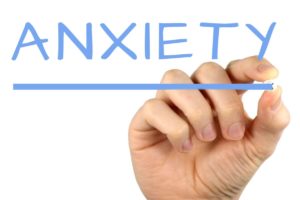SomnusNooze
 Separately identifying and treating anxiety can be helpful for people who have chronic conditions. This is one of the main conclusions of a refereed journal article, which we’ve summarized at the request of the HF Patient Advisory and Advocacy Council (PAAC) because of its potential relevance to those with hypersomnias.
Separately identifying and treating anxiety can be helpful for people who have chronic conditions. This is one of the main conclusions of a refereed journal article, which we’ve summarized at the request of the HF Patient Advisory and Advocacy Council (PAAC) because of its potential relevance to those with hypersomnias.
This study highlighted the significance of anxiety that is separate from depression in people who have chronic physical conditions. It also found that anxiety was often overlooked and undertreated in people who have chronic physical conditions. It is possible that anxiety may be overlooked in people who have hypersomnias as well, and that identifying and treating anxiety may be helpful in managing the psychological distress that can accompany these chronic conditions.
The article, Anxiety, Depression, and Function in Individuals With Chronic Physical Conditions: A Longitudinal Analysis, examined the association between anxiety, depression, physical symptoms (pain intensity, sleep disturbance, fatigue), and areas of functioning (cognitive, physical, social) in 1,272 individuals with four different chronic physical conditions, including muscular dystrophy and multiple sclerosis.
The study took place over a 3-year period and examined the effects of anxiety separately from depression. Sixty-four percent (64%) of the study participants were female, 36% were male, and they were an average age of approximately 59 years old. The key findings from this study are:
- Anxiety was associated with increased pain, fatigue, and sleep disturbance.
- Compared to depression, anxiety was more strongly associated with declines in cognitive functioning over time. (Cognitive functioning, in this study, was defined as reading and following complex instructions, learning new tasks, and managing time.)
- Anxiety was also associated with less satisfaction with involvement in social activities with others, as well as a decline in physical functioning over time, but to a lesser degree than depression.
Overall, these findings highlight the significance of anxiety as a possible component of psychological distress in some people who have chronic physical conditions. This finding is important because anxiety may be overlooked and undertreated in people who have chronic physical conditions.
This article is relevant to people who have hypersomnias because:
- People who have IH, narcolepsy, and the related hypersomnias may also experience anxiety, with or without symptoms of depression.
- Similar to chronic physical conditions, anxiety could also be overlooked by healthcare providers in people who have hypersomnias.
- Anxiety was linked with impacts on cognitive functioning, pain, fatigue, and sleep disturbance, which may be areas of distress for people who have hypersomnias.
- Although sleep disorders such as IH were not included in the study, assessment of anxiety, including treatments for symptom management, might need to be considered in the evaluation of people who have symptoms of distress.
Source: Battalio, Samuel L., et al. “Anxiety, Depression, and Function in Individuals with Chronic Physical Conditions: A Longitudinal Analysis.” Rehabilitation Psychology, vol. 63, no. 4, 2018, pp. 532–541, doi:10.1037/rep0000231.
This summary was reviewed and approved by Dr. Jason Ong, a Member of the HF Medical Advisory Board, and HF PAAC members.
